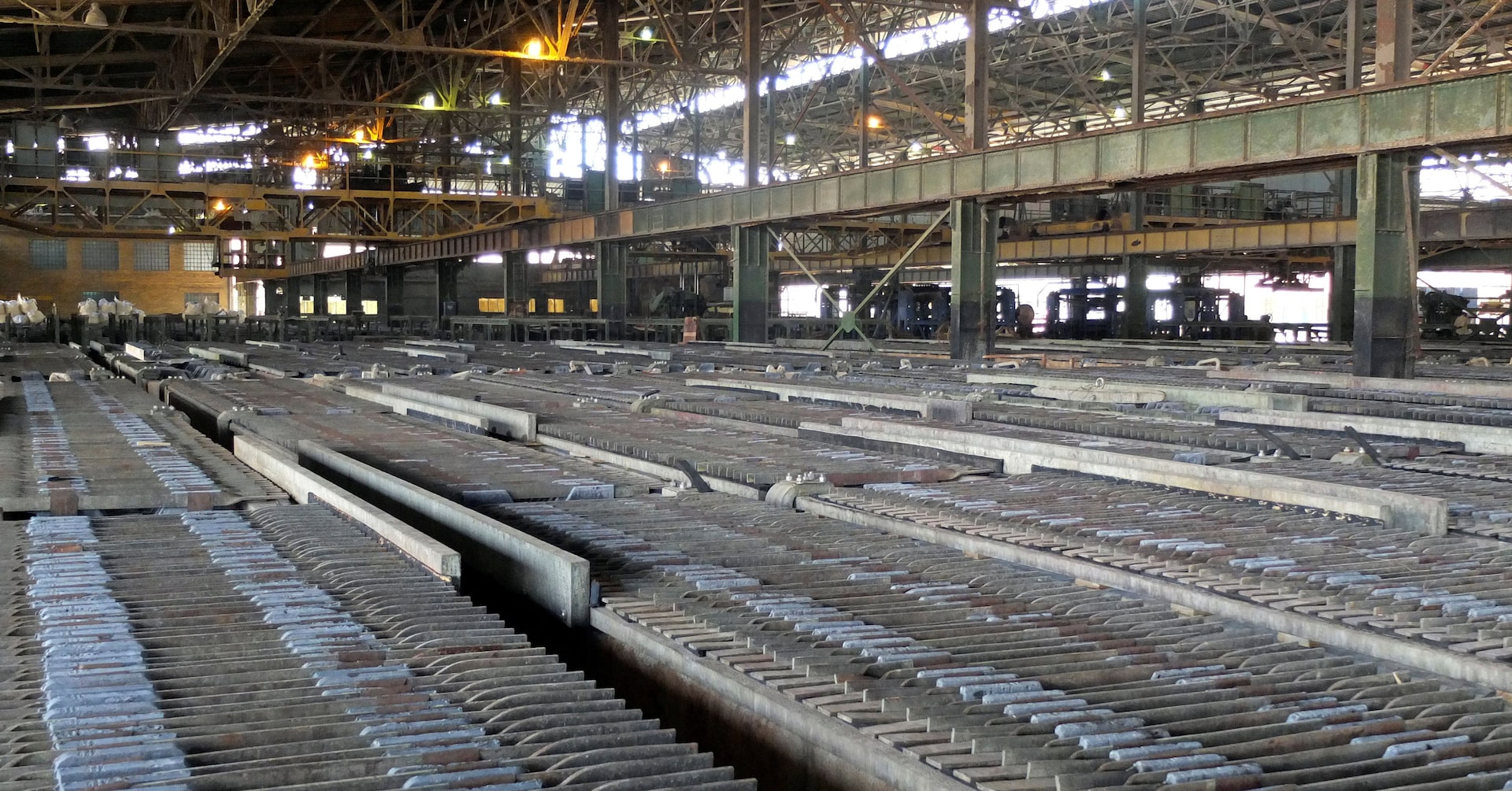Congo's Cobalt Export Ban: Market Awaits Quota Plan

Table of Contents
The Implications of Congo's Cobalt Export Ban
Congo's cobalt export ban, even in its suspended state, has profound implications for the global economy and the intricate cobalt supply chain. The DRC's dominance in cobalt production, accounting for over 70% of global supply, means any disruption has far-reaching consequences.
-
Increased Cobalt Prices: A reduction in cobalt supply directly translates to higher prices. This impacts manufacturers across various sectors, from electric vehicle (EV) producers to electronics companies, increasing production costs and potentially affecting consumer prices. The volatility introduced by the ban makes accurate price forecasting challenging, adding to the uncertainty.
-
Supply Chain Disruptions for EV Manufacturers: The EV industry, heavily reliant on cobalt for its batteries, faces significant challenges. Production delays and potential shortages could hamper the ambitious growth plans of many EV manufacturers, affecting their market share and potentially delaying the transition to electric mobility. Secure and stable cobalt sourcing is now more critical than ever.
-
Potential for Increased Reliance on Less Ethically Sourced Cobalt: The ban might inadvertently lead to a surge in demand for cobalt from sources with less stringent ethical and environmental standards. This could undermine efforts to improve labor conditions and reduce the environmental impact of cobalt mining. The focus on responsible sourcing is now a paramount concern.
-
Investment Implications for Mining Companies: The uncertainty surrounding Congo's cobalt export policy creates significant risks for investors in the cobalt mining sector. Companies operating in the DRC face considerable volatility, affecting investment decisions and potentially hindering future development projects. Long-term investment strategies require a careful assessment of the evolving political and regulatory landscape.
-
Impact on the DRC Economy: The ban presents a double-edged sword for the DRC. While it aims to increase domestic revenue through processing and value addition, the short-term disruption to exports could negatively impact government revenue and employment in the mining sector. Balancing economic growth with sustainable development is crucial for the country.
The potential for geopolitical instability is also a significant concern. The DRC's cobalt reserves are a valuable strategic resource, and the export ban could trigger competition and conflict among nations vying for control of this crucial commodity. International cooperation is vital to prevent such destabilization. Furthermore, the environmental impact of cobalt mining, including deforestation and water pollution, must be considered. The ban could potentially lead to increased pressure to improve environmental regulations within the DRC mining sector. Major cobalt consumers are scrambling to develop contingency plans, diversifying their supply sources and exploring alternative battery technologies to mitigate the impact of the ban.
Understanding the Proposed Quota System
The DRC government's rationale behind the export ban and the proposed quota system is multifaceted. The stated goals include:
-
Increased Revenue for the DRC: By processing cobalt domestically, the DRC aims to capture greater value from its resources, generating more revenue for the government and potentially supporting national development projects.
-
Promotion of Domestic Processing and Value Addition: The quota system aims to stimulate the development of a domestic cobalt processing industry, creating jobs and technological expertise within the country. This shift towards value-added processing is considered a key driver of sustainable economic development.
-
Control over Cobalt Exports to Prevent Exploitation: The government aims to regulate exports to prevent the exploitation of its resources and ensure fairer prices for its cobalt. This will also help in preventing the sale of cobalt to countries not adhering to responsible sourcing policies.
-
Potential for Fairer Distribution of Profits within the DRC: A well-designed quota system could ensure that a larger share of the profits from cobalt mining benefits the DRC population and local communities. However, this requires robust governance and anti-corruption measures.
Implementing a fair and effective quota system presents significant challenges. Determining equitable quotas for different companies, preventing corruption and ensuring transparency, and establishing a robust monitoring system are all critical hurdles. Potential loopholes and risks associated with the quota system include the possibility of smuggling, underreporting of exports, and unequal access to quotas among different producers. International organizations are closely monitoring the situation, expressing concerns about transparency and fair implementation, emphasizing the need for international cooperation and oversight.
Market Reactions and Future Outlook
The announcement of Congo's cobalt export ban triggered immediate reactions in the stock market. Major cobalt mining companies experienced significant fluctuations in their share prices, reflecting investor uncertainty.
-
Fluctuations in Cobalt Prices Following the Announcement: Cobalt prices experienced volatility, reflecting the market's reaction to the potential supply disruptions. This volatility underscores the significant market impact of the DRC's cobalt production.
-
Investor Sentiment and Investment Strategies in Response to the Ban: Investors are reassessing their risk profiles, adjusting investment strategies, and seeking greater clarity on the future direction of cobalt supply. The uncertainty has impacted investment decisions within the mining industry.
-
Impact on the Profitability of Cobalt Mining Operations: The uncertainty around supply and pricing directly affects the profitability of cobalt mining operations, influencing investment decisions and potentially leading to restructuring in the industry.
EV manufacturers and battery producers are actively seeking to mitigate the impact of the ban through various strategies, including diversifying their cobalt sourcing, exploring alternative battery chemistries that reduce or eliminate cobalt dependence, and investing in long-term contracts with suppliers.
Future demand projections for cobalt remain strong, driven by the continued growth of the EV market and the increasing adoption of electric vehicles globally. However, the DRC's export policy creates uncertainty, requiring a more diversified approach to cobalt sourcing. Alternative cobalt sources, including Australia, Canada, and other countries, are being explored, although they currently produce a smaller fraction of the global supply. The focus on responsible sourcing and ethical cobalt mining practices is becoming increasingly important, with growing pressure on companies to ensure that their cobalt supply chains meet high ethical and environmental standards. Consumers also play a critical role by supporting companies committed to ethical sourcing and sustainable practices.
Conclusion:
Congo's cobalt export ban, even temporarily suspended, underscores the vulnerability of the global cobalt supply chain and the DRC's significant influence on the market. The forthcoming quota plan will be crucial in shaping the long-term impact on cobalt prices, global supply stability, and the economic development of the DRC. All stakeholders – governments, businesses, and consumers – must closely monitor the situation and advocate for transparent and sustainable cobalt sourcing practices. Understanding the implications of Congo's cobalt export ban is essential for navigating this volatile market and ensuring a secure and ethical supply of this critical mineral. Stay informed on the latest developments surrounding Congo's cobalt export ban and its quota plan to make informed decisions regarding investment, sourcing, and production.

Featured Posts
-
 Miami Heats Internal Conflict Jersey Numbers Hall Of Famer And The Butler Situation
May 16, 2025
Miami Heats Internal Conflict Jersey Numbers Hall Of Famer And The Butler Situation
May 16, 2025 -
 The Jalen Brunson Trade A Bigger Loss For The Mavericks Than The Doncic Near Departure
May 16, 2025
The Jalen Brunson Trade A Bigger Loss For The Mavericks Than The Doncic Near Departure
May 16, 2025 -
 Goles Y Resumen Del Partido Portugal Vence A Belgica 1 0
May 16, 2025
Goles Y Resumen Del Partido Portugal Vence A Belgica 1 0
May 16, 2025 -
 Voennaya Agressiya Rf Analiz Posledstviy Massirovannoy Ataki Na Ukrainu Bolee 200 Raket I Dronov
May 16, 2025
Voennaya Agressiya Rf Analiz Posledstviy Massirovannoy Ataki Na Ukrainu Bolee 200 Raket I Dronov
May 16, 2025 -
 Nhl 25 Arcade Mode Everything You Need To Know
May 16, 2025
Nhl 25 Arcade Mode Everything You Need To Know
May 16, 2025
